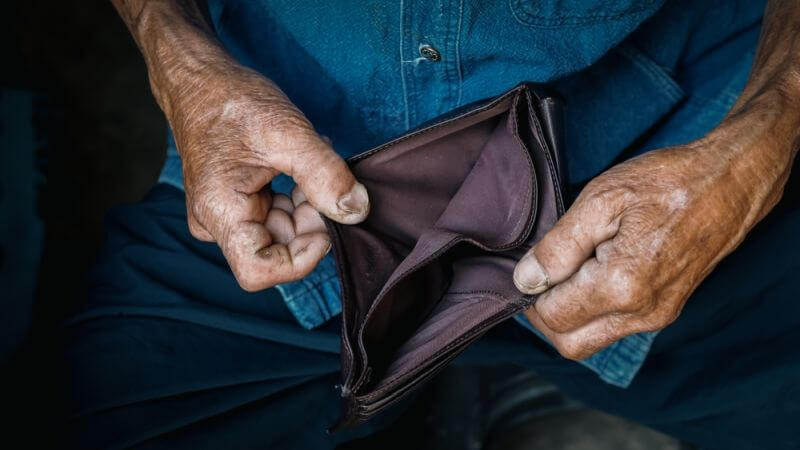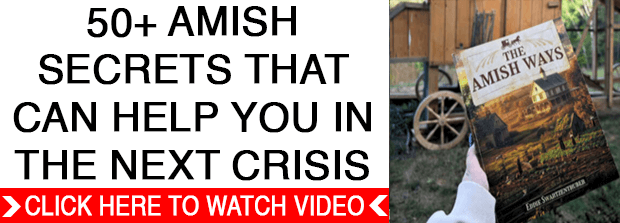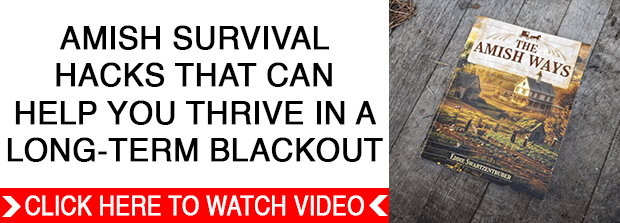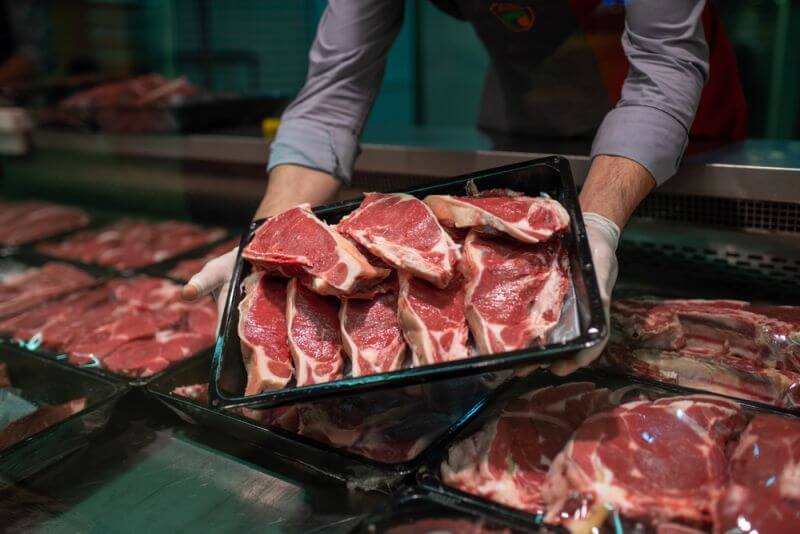We all know that the economy has been anything but ideal for the last few years. High inflation, especially in key consumer goods, like food, have stretched the average family’s budget to the limit, and beyond. Those who were living from paycheck to paycheck are finding themselves forced to decide what bills to pay and what things to let go. In the midst of all this, it can be extremely hard to even think about prepping, let alone actually doing it.
But all this economic turmoil can also go to prove why we need to be prepping. As difficult as it might be, now more than ever, we need to do whatever we can to ensure that we are ready for a disaster. With the economy in decline, government agencies and non-profit organizations are less able to provide the help we may need in a crisis. If we can’t take care of ourselves and our families, there may not be anyone else that we can turn to.
Prepping has always required sacrifice… and often, quite a bit of sacrifice. Whether we’re talking about a pioneer family during the westward expansion of our country, women trying to keep the home fires burning, while their husbands and sons were off winning World War II, or a family who survived through COVID, the issue is the same. Being prepared and surviving requires sacrifice.
But that sacrifice is always better than the other option; that of dying of starvation, because we didn’t put the necessary effort into making sure we could survive. We all know this, so do whatever we can, even when it’s hard. But there’s always the temptation to throw in the towel.
Live in Survival Mode
The COVID-19 pandemic wasn’t all that far in our collective history. We might all be tired of hearing about it, but there were many lessons that we should all have learned in that 16 months. Yet surprisingly, after spending years preparing for such an event, there are many preppers who didn’t see it for the disaster that it was, even while living through it.
One of the most valuable lessons I personally learned, during that time, was how to prep while living in a disaster. The shortages we encountered in the stores, made it necessary for many of us to dig into our stockpiles. Yet, even while doing that, we were still taking whatever opportunities we could, to continue building those stockpiles. Not knowing what problems tomorrow might bring, none of us were comfortable allowing our survival stockpiles to run down. Therefore, we continued to buy, replacing what we used, whenever we could.
But while all that was going on, there were many preppers who didn’t see the pandemic as a survival situation. They complained about not being able to buy food, while sitting on many months’ worth of supplies, stashed away in their homes. They suffered needlessly, just like those who weren’t prepared.
While those people were complaining about shortages, I was transforming my lifestyle, going into survival mode. When the opportunity presented itself to build my stockpile, even a little bit, I did. When that opportunity wasn’t there, I got by just fine on what I had.
I need to add here that this wasn’t based on years of prepping. Less than two years before COVID started, I went through a personal disaster, which caused me to lose my entire stockpile. Six-months of food for eight adults was gone, just as thoroughly as if it had gone up in smoke. At the time of the pandemic, I was living in a 700 square-foot apartment, which left very little room to build a new stockpile. Nevertheless, we built what we could and it carried us through the pandemic.
But here’s the thing; I didn’t stop living in survival mode once that was over. It became more than something we did to get through the pandemic, it became a lifestyle change. We’ve continued eating what we need, out of our stockpile, while all the time we are also buying food for our stockpile, building it up. Essentially, our stockpile has become a massive pantry, with some pretty hefty “minimum stocking levels” to borrow a term from retail.
Look for Opportunities
One of the things that living off our stockpile allows us to do, is to save money on food. We do that by using all the old tricks, like taking advantage of sales and bargains. Take meat for example. That’s one of the hardest things for most preppers to add to their stockpiles. Yet we have two freezers full of meat, enough to last my wife and I well over half a year (maybe more). Every bit of it has been bought at reduced prices, most of it in family packs with “reduced for quick sale” stickers on it. We bring that home, repackage it in smaller, vacuum-sealed packages, and squeeze it into the freezer.
For those who are saying something like, “You fool! All that meat will go bad if the power goes out.” please realize that I’ve already thought of that. We have enough capability to preserve meat, via a combination of smoking, dehydrating, and caning, to get all that frozen meat preserved, before it can go bad, should we lose the ability to depend on the power grid.
Our restocking doesn’t stop there. my wife is a world-class champion at finding sales. While I can’t claim that no food comes into our home that isn’t bought on sale, I can claim that nothing is bought in quantity, unless it is on sale. I can also confidently say that no sale goes by that she hasn’t checked thoroughly, looking to see what she can add to our stockpile. With a vacuum sealer, we are able to buy in bulk and package just about anything for long-term storage.
I’ve noticed through the years, that many preppers buy and build their stockpile to fit a menu. But the truth of the matter is that once we find ourselves living in survival mode, that menu will probably be one of the first things lost. We’ll cook what we have, even if it doesn’t seem to go together. Fortunately for me, my wife is a great cook, with an incredible knowledge of how to get the most out of spices and seasonings. She can take just about anything and make it taste good, by adding the right seasonings to it.
Do it Yourself
As we all know, people who survived in the past did so mostly because of their self-sufficiency. They could get by just fine, when the stores were out of stock and didn’t need to wait for the government to bail them out. Whether it was getting through the cold winter months or surviving through a hurricane, people took care of themselves.
During World War II, the federal government encouraged Americans to plant “Victory Gardens” and grow their own produce. Here in the prepping community, that same idea is talked about all the time. even so, the percentage of preppers who are actually growing food is still way too low, with many preppers telling themselves that they’ll start doing it when a disaster strikes. That’s going to be too late.
It takes time to get a garden growing. The first year is just about getting the soil into condition. You can’t expect to get much out of your garden in that year. But what’s worse isn’t the time it takes to get the garden going; it’s the time that it takes for the gardener to learn how to grow things. unless you’re already an avid gardener, you’re probably going to have more failures than success.
But there’s another important issue about growing our own food, that none of us can afford to forget. That is, it takes a large garden to grow enough food to live on. The 10 or 12-foot garden that most people think is a “big garden” is just one garden bed. Add another ten of those, or so, if you want to grow enough to live on.
The truth is, it takes a lot to get a garden started. But once you do, you can grow at least part of your food for a very reasonable cost. Considering how food prices keep going up; being able to grow your own is definitely worth the effort.
Conclusion
We have to remember that survival is a lifestyle. If all we do is prepare to survive “some day,” stockpiling survival gear and supplies we won’t be ready. Those who survive are the ones who can do what needs to be done instinctively; and that only comes by doing it all the time. We have to build what people are calling “muscle memory.” When you and I start changing our lifestyle to more closely match that which we need to have during a time of crisis, then and only then, will we be able to say that we’re beginning to be prepare to survive the next catastrophe.
























































































Survival as a Lifestyle.
Regarding that, I’m fully living the survival mentality, yet living self-sufficiency full-time, though capabilities we all should develop, can be a hindrance to even greater preparedness because modern living allows us to be more efficient and afford more. Seemingly a contradiction, it’s not because my jobs amongst population density have allowed both extensive accumulation supplies, equipment and all long list of multiple preparedness skills of more than anyonecan imagine. Read in my previous recent post that I’m prepared to give myself great advantages in future bartering for goats and chickens when the time comes because they don’t store well on shelves. Even my vacation time has been preparedness skill development focused. All of my choices of jobs over the years have been what would be extremely useful for when our preparedness is needed, but instead of developing new skills as a do-it-yourselfer, I’ve done them professionally and excellent at all of them. I collect skills and the ones most likely to be needed in the harsh times to come. With not living preparedness as a lifestyle, that doesn’t make me unprepared. My life has been full of changes and new things, so that fits with my pronouncement: “Adaptation is the key to survival as it always has been for not only five thousand years of known world history (a chronology of changes) of man and nations, but the entirety of history of the Plant and Animal Kingdoms. Those that survived, we see today with the splendor of what worked and those that haven’t, we see in fossil records that they once existed.” I have flexibility to adapt. There is much talk among our preparedness communities of “Survival Plans,” yet that just depends upon what is expected as in “planning,” but do the planners among us really know the future? My preparedness is of the nature to be highly adaptable to not only multiple scenarios that I can imagine, but for the unexpected! I’m even prepared to be surprised, yet my awareness is high, so I expect most of us to be surprised. What does that say about planning?
[email protected]
Reading this article again, I see that I should also address “… many preppers telling themselves that they’ll start doing it (gardening) when a disaster strikes”
Related to our previous article on operational security [OPSEC], it’s fitting for me and my situations to garden later which I can do because I have the food storage and already have well established gardening skills.
Waiting for the starving, angry mobs to have run their course without interactions with me by not being a target defending a garden that can wait for a less violent time while instead enjoying excellent food storage, also allows me more time for many other tasks that will come with the changes we’ll face.
I have seeds, magnitudes more and in more varieties than any, even here, are likely to imagine. They are refrigerated and will keep. After a surviving community is stabilized, that being time to garden, I’ll barter and even give seeds to resourceful rural neighbors and we’ll likely be trading various crops and favors at harvest.
I reference the extensive teachings of Jim Phillips on community for us to get a more indepth understanding on the value of that and why that is a choice preparedness option.
But, for now, I greatly enjoy food in the grocery stores flown in fresh which we won’t have during The Great Collapse! I get lobster from Maine, fresh shrimp from The Gulf of America, fresh salmon and king crab from Alaska and fruits and lamb from the southern hemisphere and New Zealand. My cheese from A2 cows in France and the list goes on long as we all easily imagine.
Contrast this to the harsh times to come when traveling even a mile can be perilous with desperate bandits at choke points! Instead, I purchace the food with only a tiny portion of my income or of greater significance with a tiny fraction of my time best spent working among population density with the rest of my income greatly increacing my preparedness supplies, yet I’ve prepared to leave before it becomes untenable to eventually garden among low population density.
Conversations invited:
[email protected]
3.
Low value bulk among preparedness supplies – Tough decisions:
My preparedness supplies are a huge bulk of storage nuisance prompting me manty times to think of paring it down. It’s easy to justify storage accommodations for high value items, but I need to decide how much junk to keep. I was just eating and using hot sauce and thinking: Should I save the bottle with the rest of my collection of bottles and jars? Everyone throws them away — they’re worthless trash! OR are they? Having just posted on gardening and multiple times lately on bartering, I know when the time is right, I’ll grow a garden including peppers. The fresh excess will be an excellent barter item. Of course, I can dry peppers to barter them year round, but I’m also thinking of my enjoyment of pepper sauce. Sure, I’ve seen the YouTube videos teaching the making of pottery out of clay and firing it and creating a glaze, but do I really want to have to do all that for what is lesser than (disposable) glass? I can ferment a large batch of peppers and fill those saved empty pepper bottles in the harsh times to come when stores no longer exist from a time of desperation and looting and burning and rioting masses when they existed. That would be so much easier than making fired porcelain clay bottles! How important to preparedness are empty glass, once used, bottles? Ancient civilizations have been studied with and compared often based upon remains of pottery used thousands of years ago! How valuable would it have been to ancient civilizations if they could have some of our once used glass bottles and jars currently residing in landfills and as lowest value items in my otherwise very high value preparedness? I can make cases of bottles of hot sauce to barter in the future. Input requested: Should I continue to add seemingly (now) worthless bottles and jars to my preparedness supplies making already tremendous bulk even harder to manage or pare it down or eliminate it entirely? Related: I have a multitude of other presently low value items. Keep? Related to our topic: “Smart Prepping Strategies When Money Is Tight”
I save my glass bottles – not for the future but for now. The problem always has been finding room do store my reusables
,
thank you for the information
myself, i don’t keep a car. so whenever i go to the grocery store, have always gotten an extra can or few, another box of this/that/other, and of course, toilet paper. made it thru 2020 fine.
oh. for sake of victory garden: try to not live in Homeowners Association / Property Owners Association community.